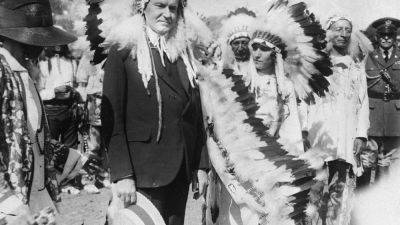I spent years studying American communism. Here’s what I learned
I’ll leave it to future historians to puzzle out the reasons why, but in the second decade of the 21st century, in the unlikely setting of the most thoroughly capitalist country in world history, large numbers of Americans, mostly young, displayed a new interest in socialist ideas, values and policy proposals, and in turn in the often neglected history of socialism and communism in the United States.
Having written three books early in my scholarly career dealing with one or another aspect of the tangled history of American communism, the last appearing in 1990, I figured I’d said all I had to say on the subject, and turned to other topics. Enough time had passed by the time of the 2010s socialist revival that the several score ageing communists and ex-communists whom I’d interviewed for my early books were now long dead.
But in 2020 an editor at a New York publishing house, noticing the upswing in interest among young Americans in leftwing (although non-communist) politicians like Bernie Sanders and Alexandria Ocasio-Cortez, contacted me wondering if there might be a readership emerging for a new narrative history of the Communist party USA, from its founding in 1919 to the demise of the Soviet Union in 1991.
We decided there was, and the result, out this month, is Reds: The Tragedy of American Communism.
A lot of what I had written in earlier books on the subject still seemed valid to me. But some things needed to change. For one thing, no one writing on the subject in the 1970s and 1980s had any real idea of the extent to which the party was involved in Soviet espionage activities in the 1930s and 1940s. More generally, what struck me as I returned to the topic was the mystery of why so many often highly intelligent and







